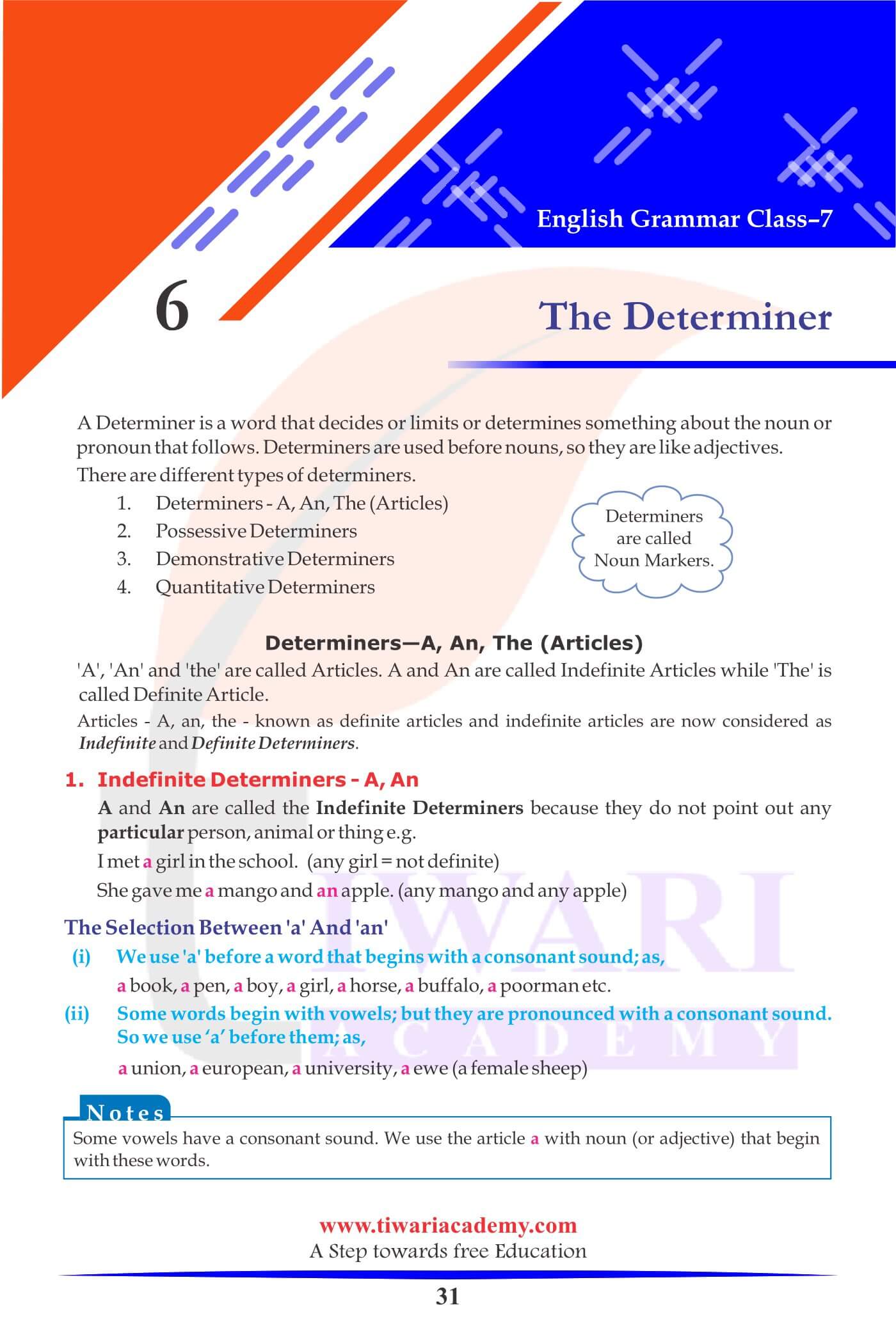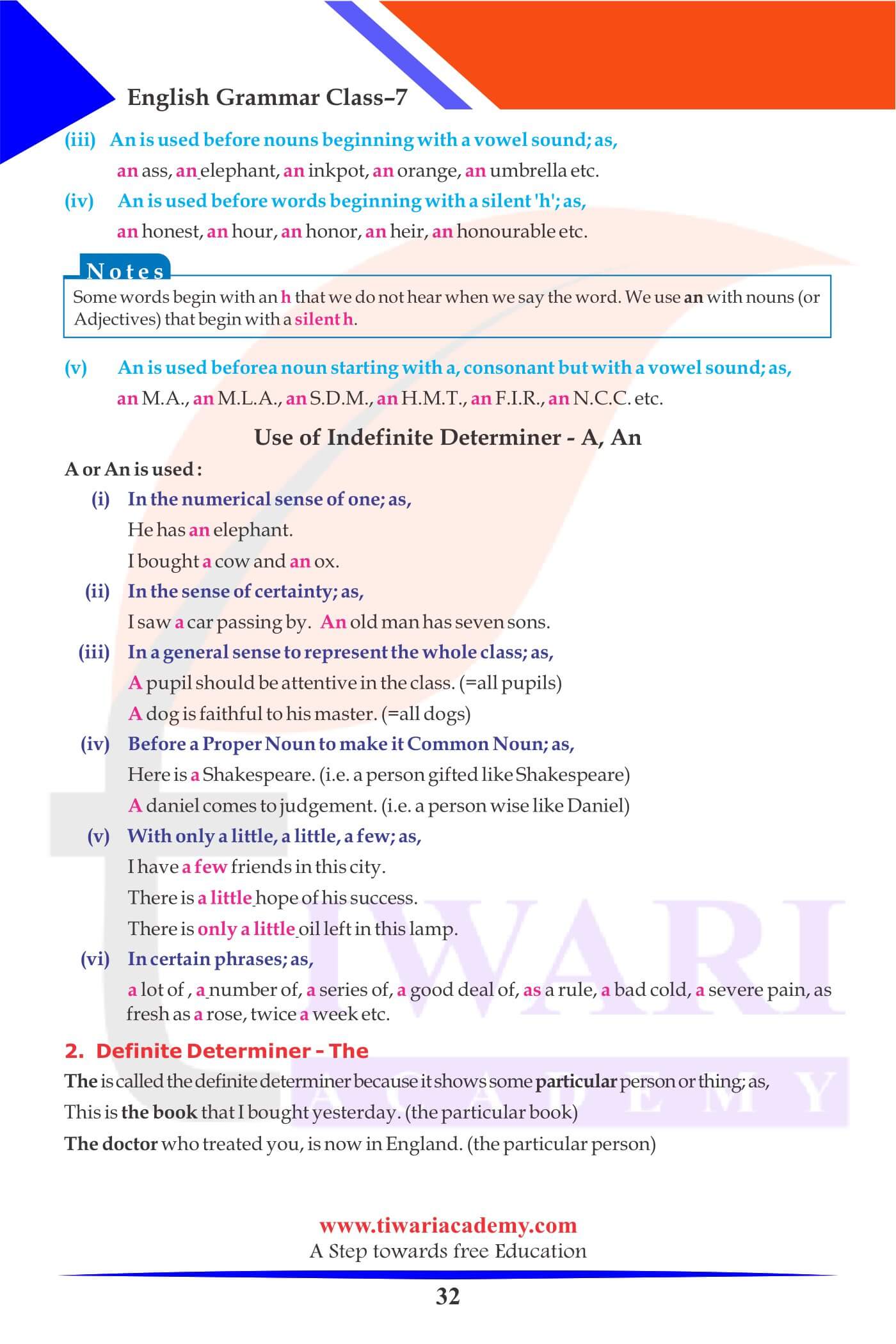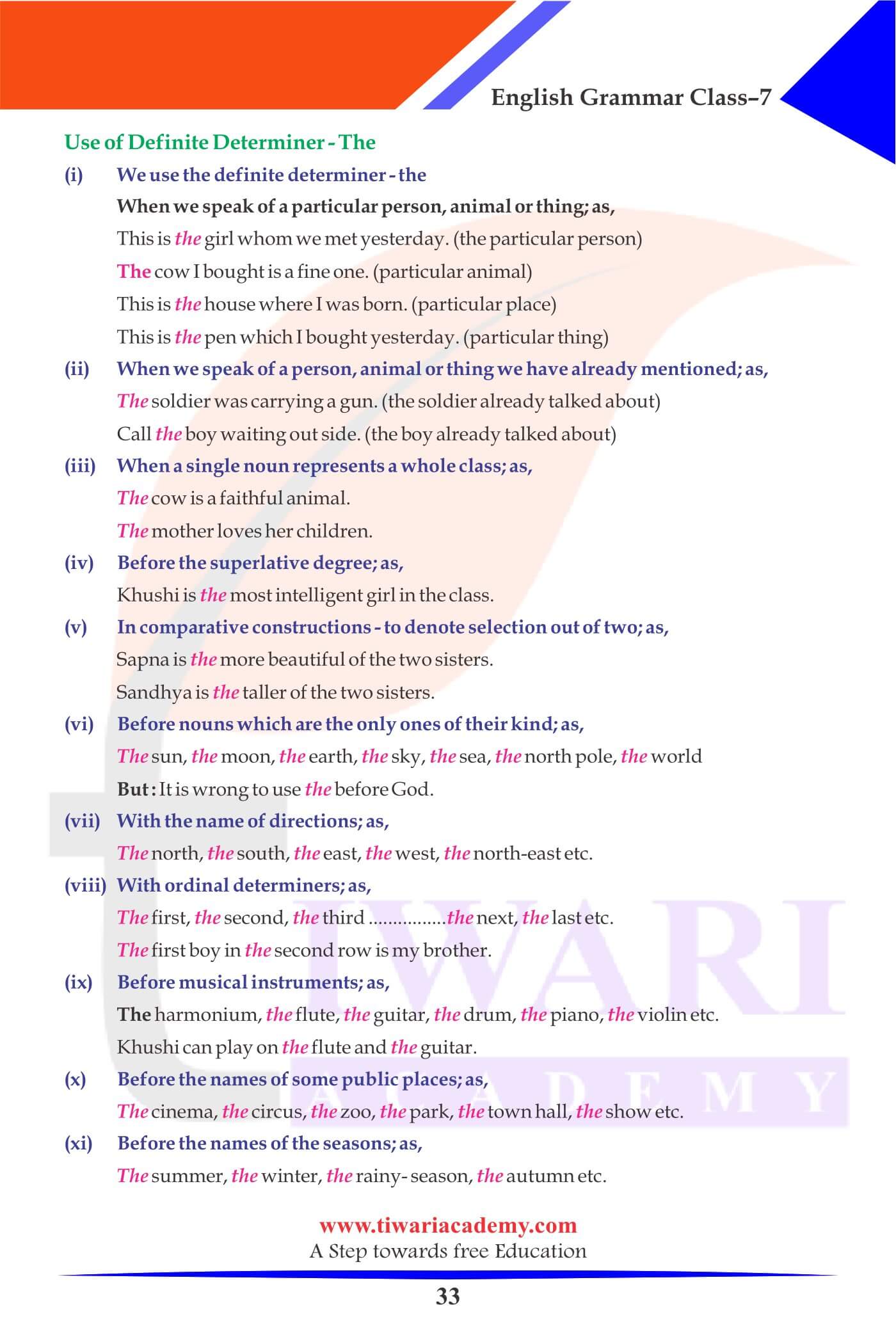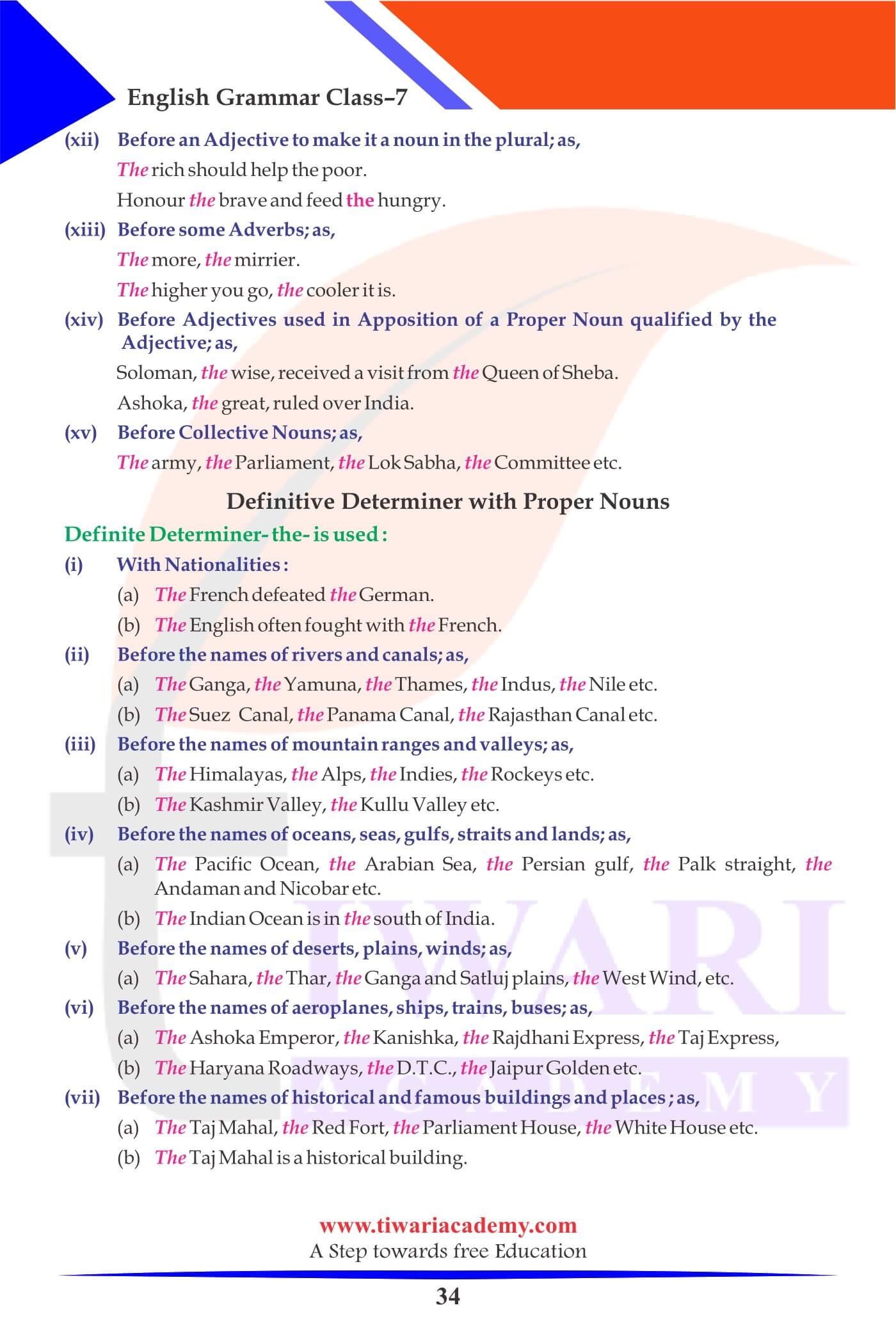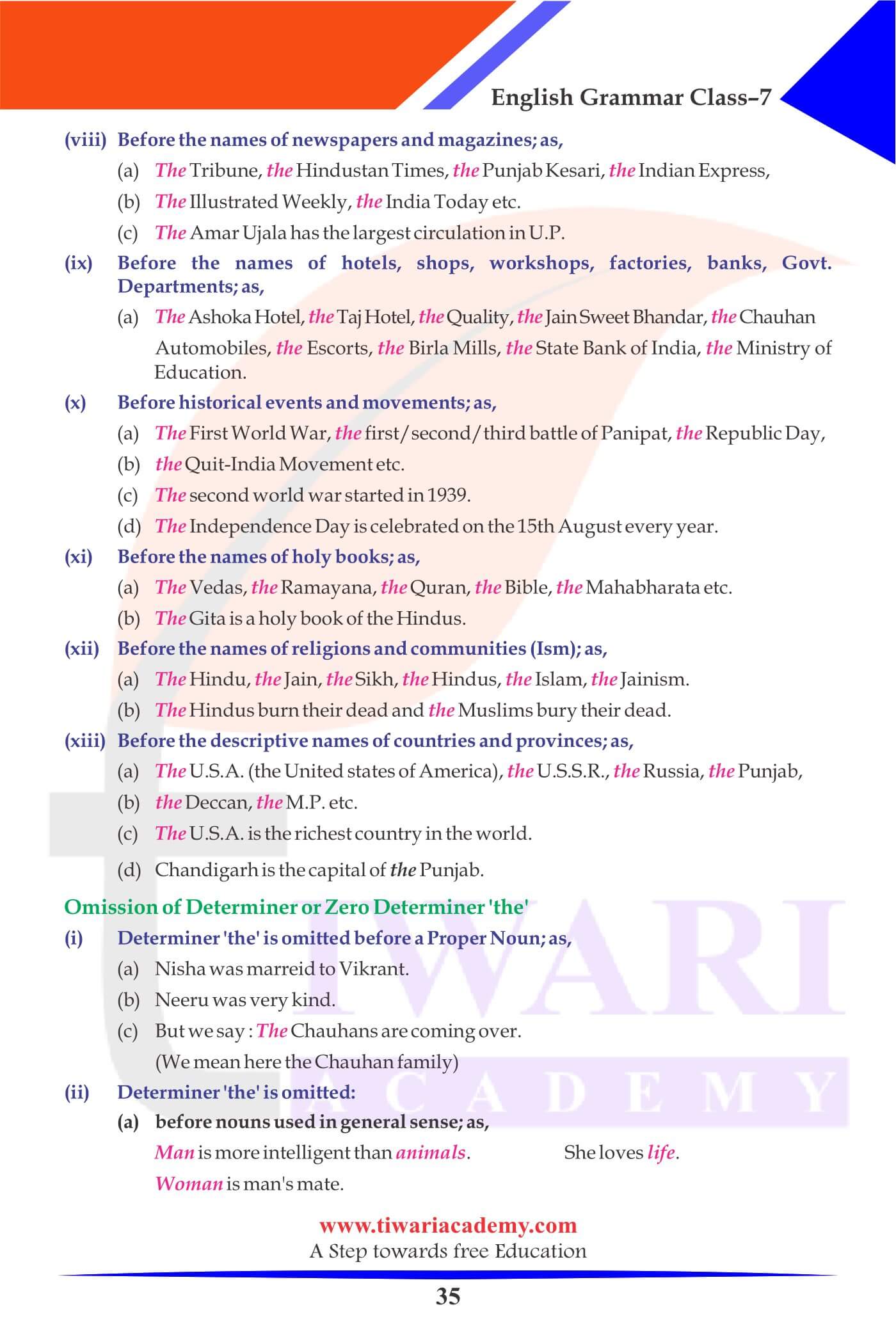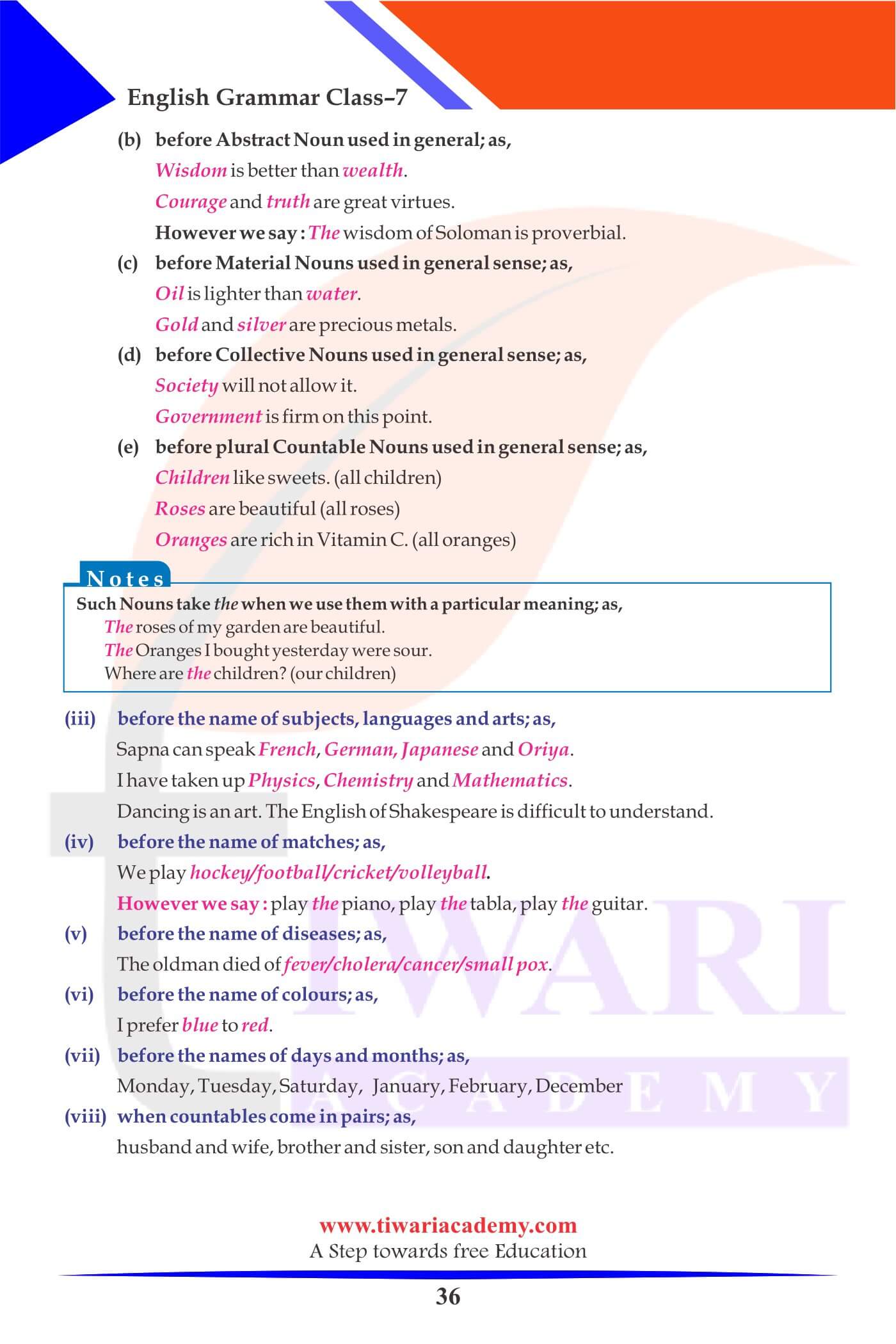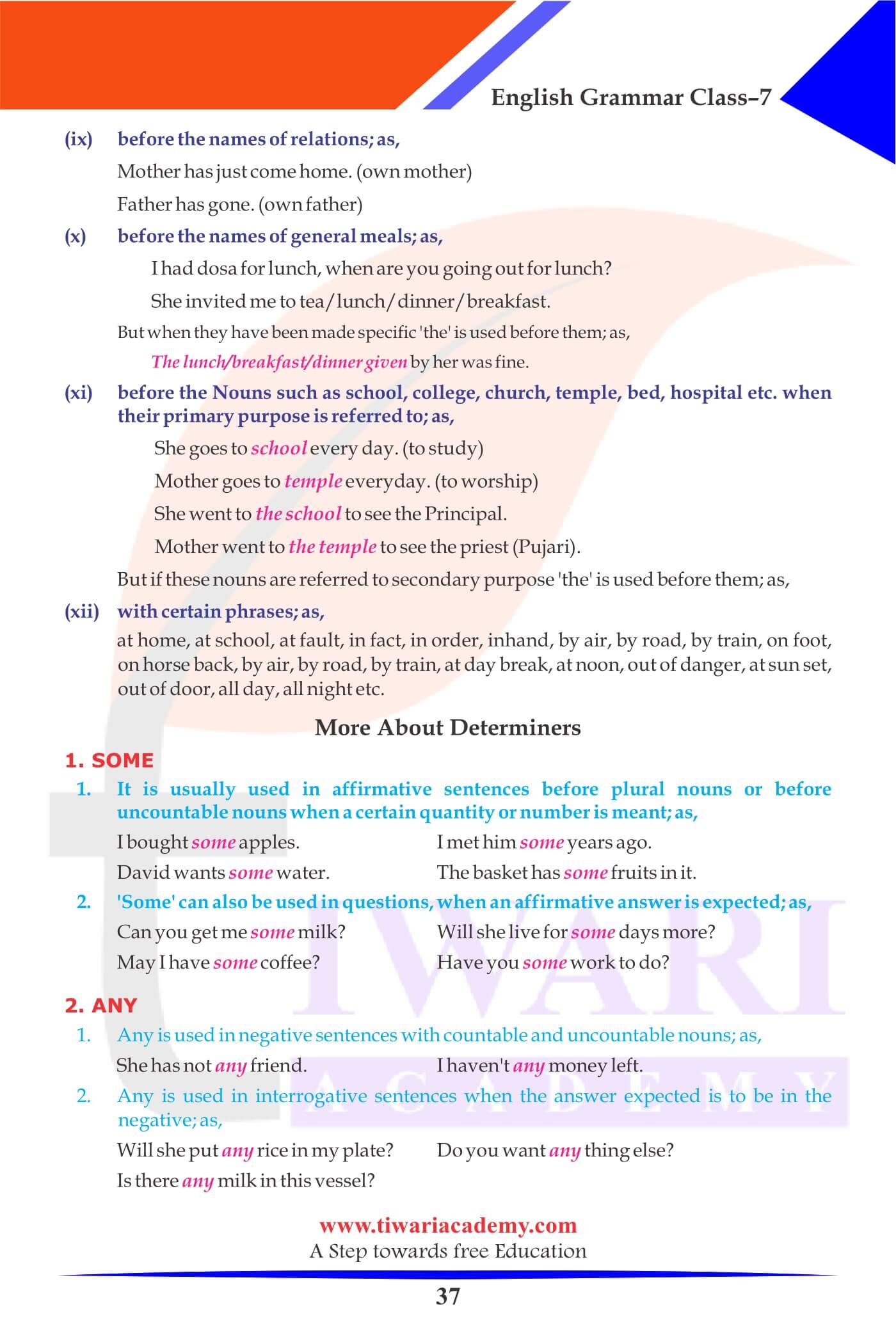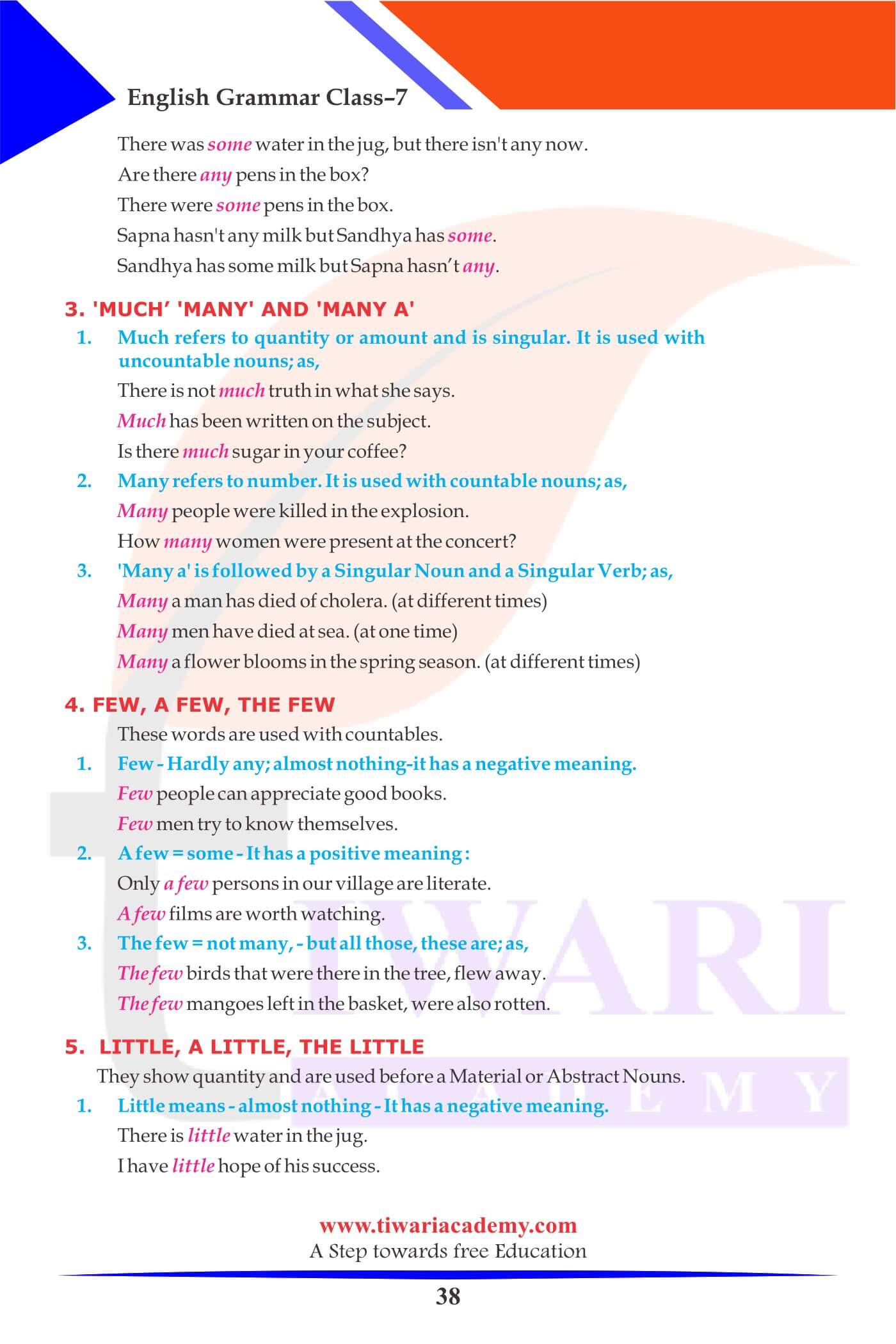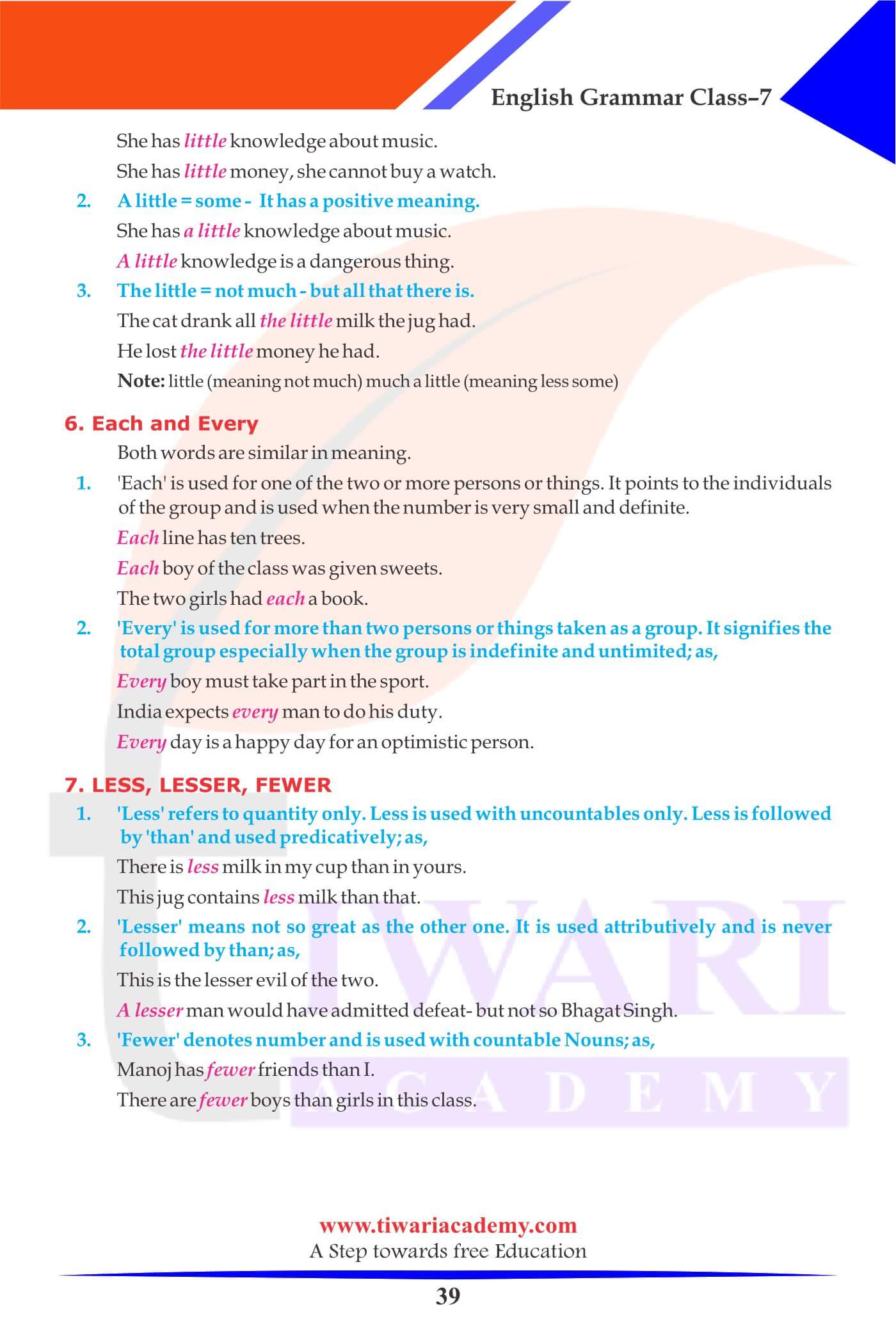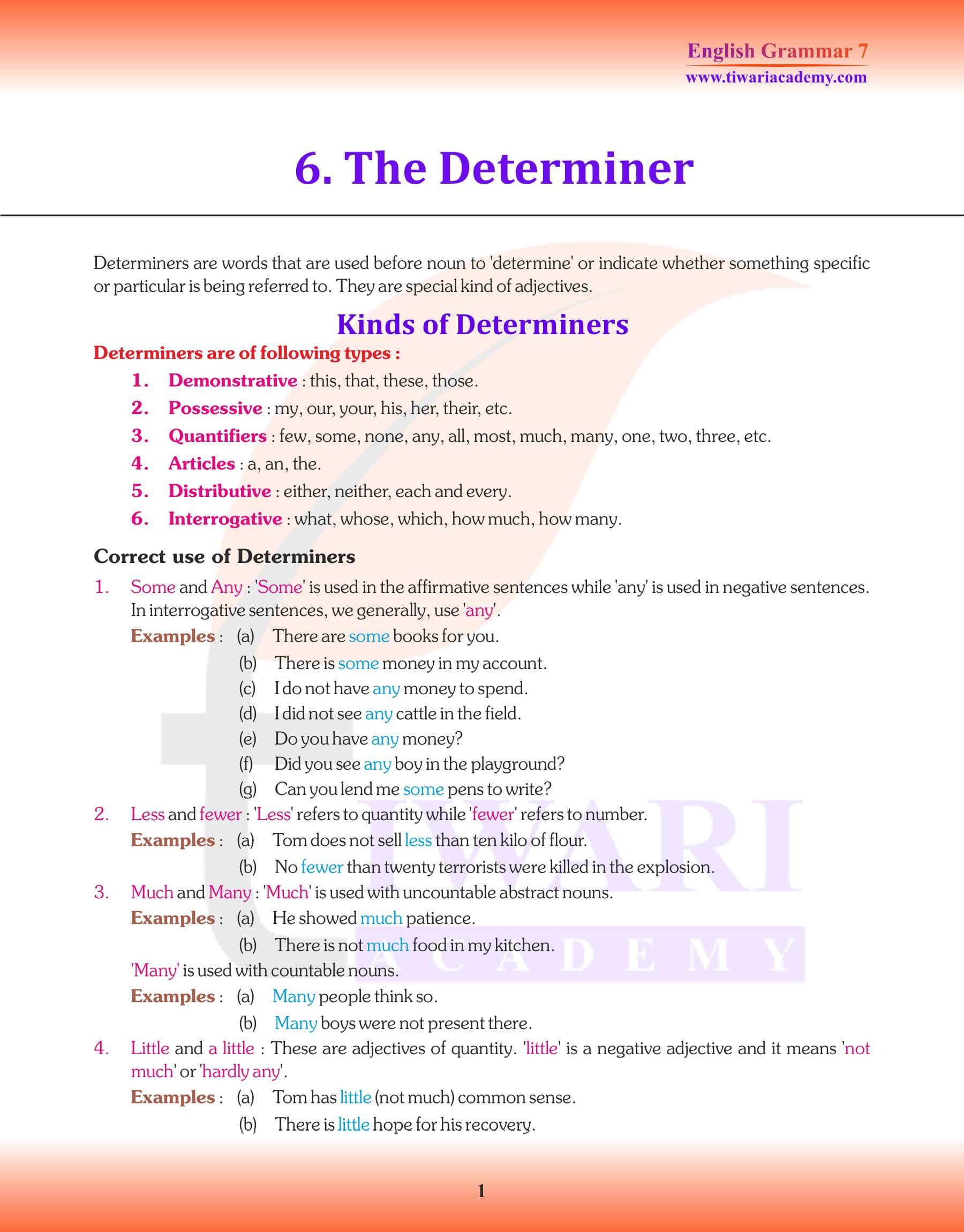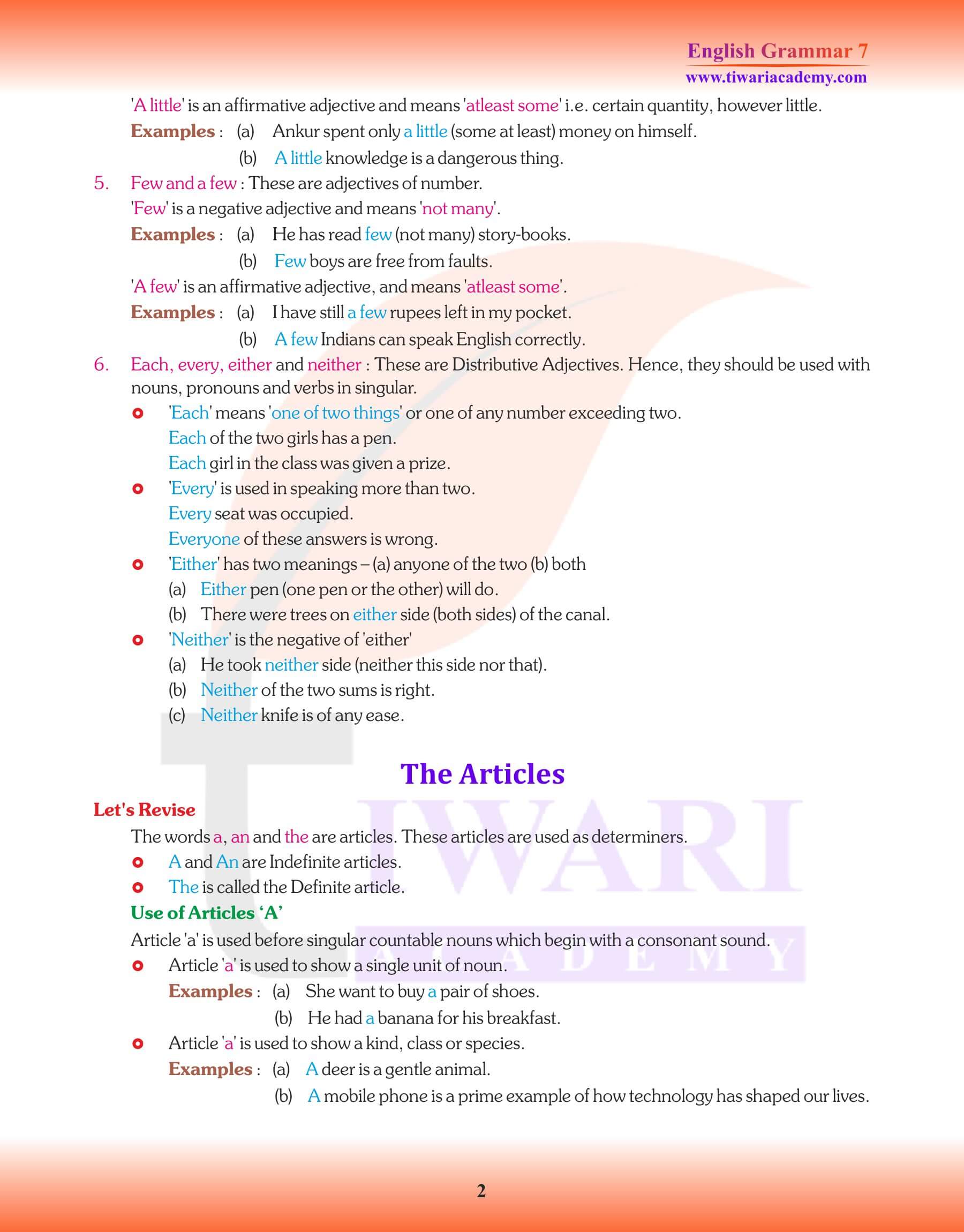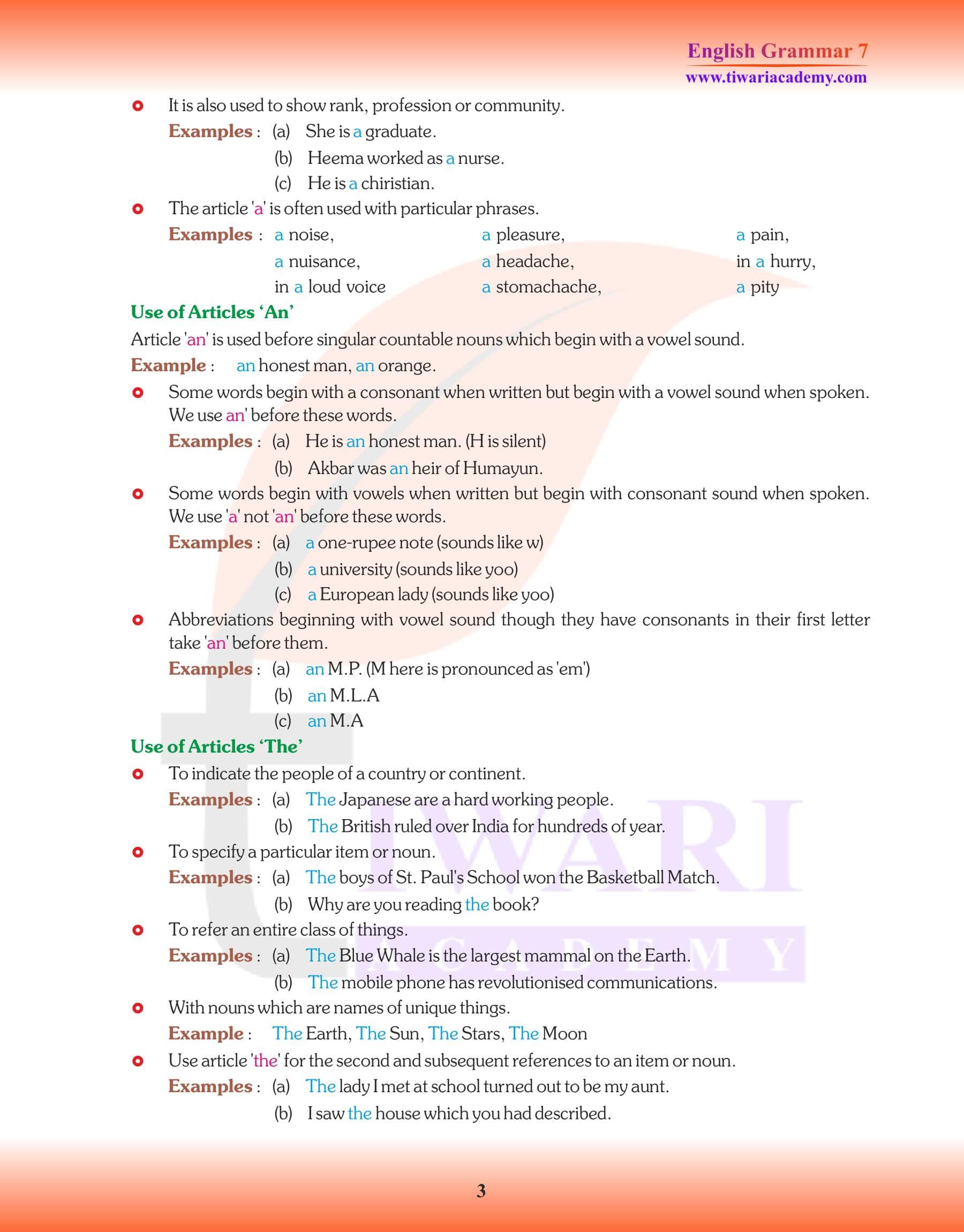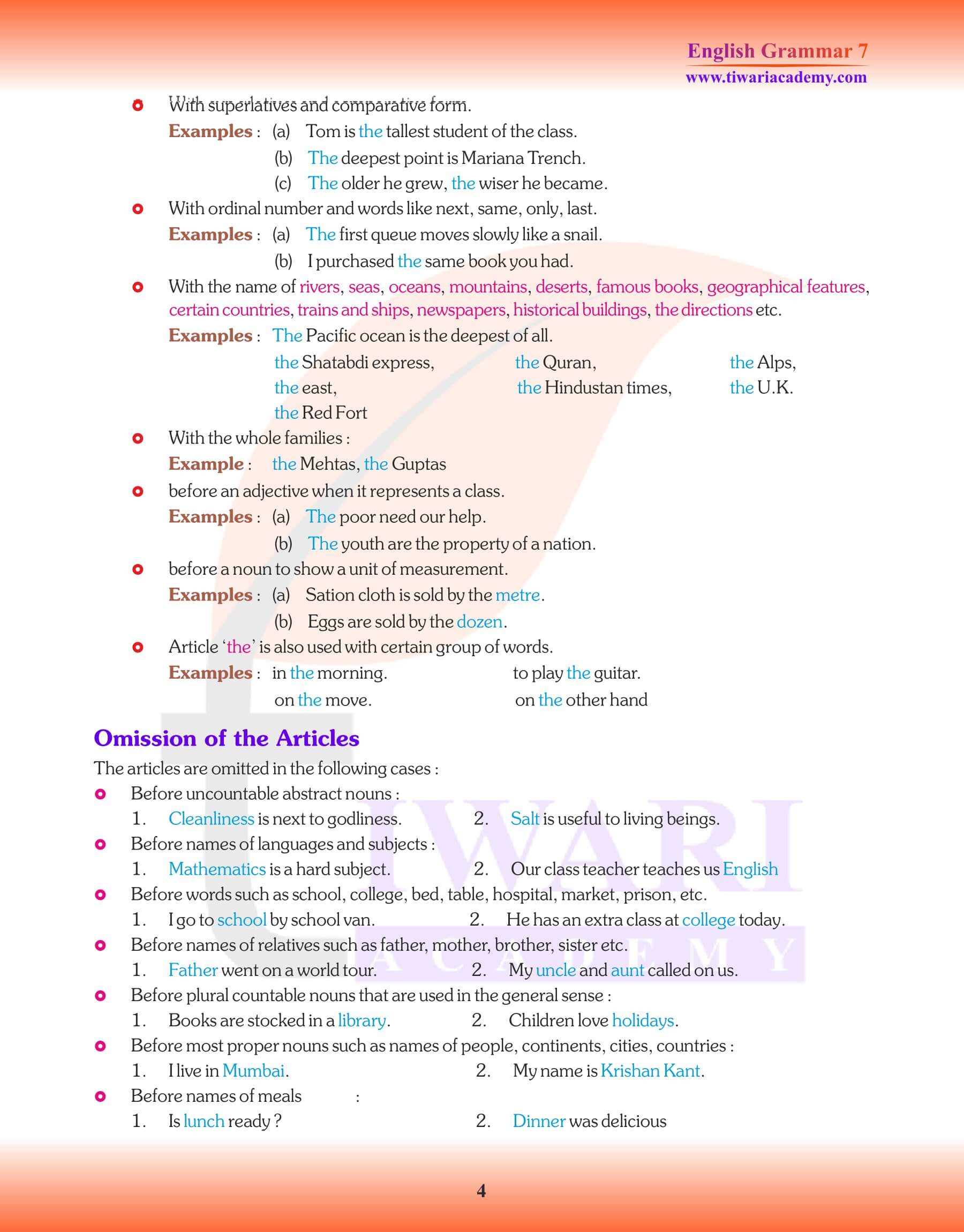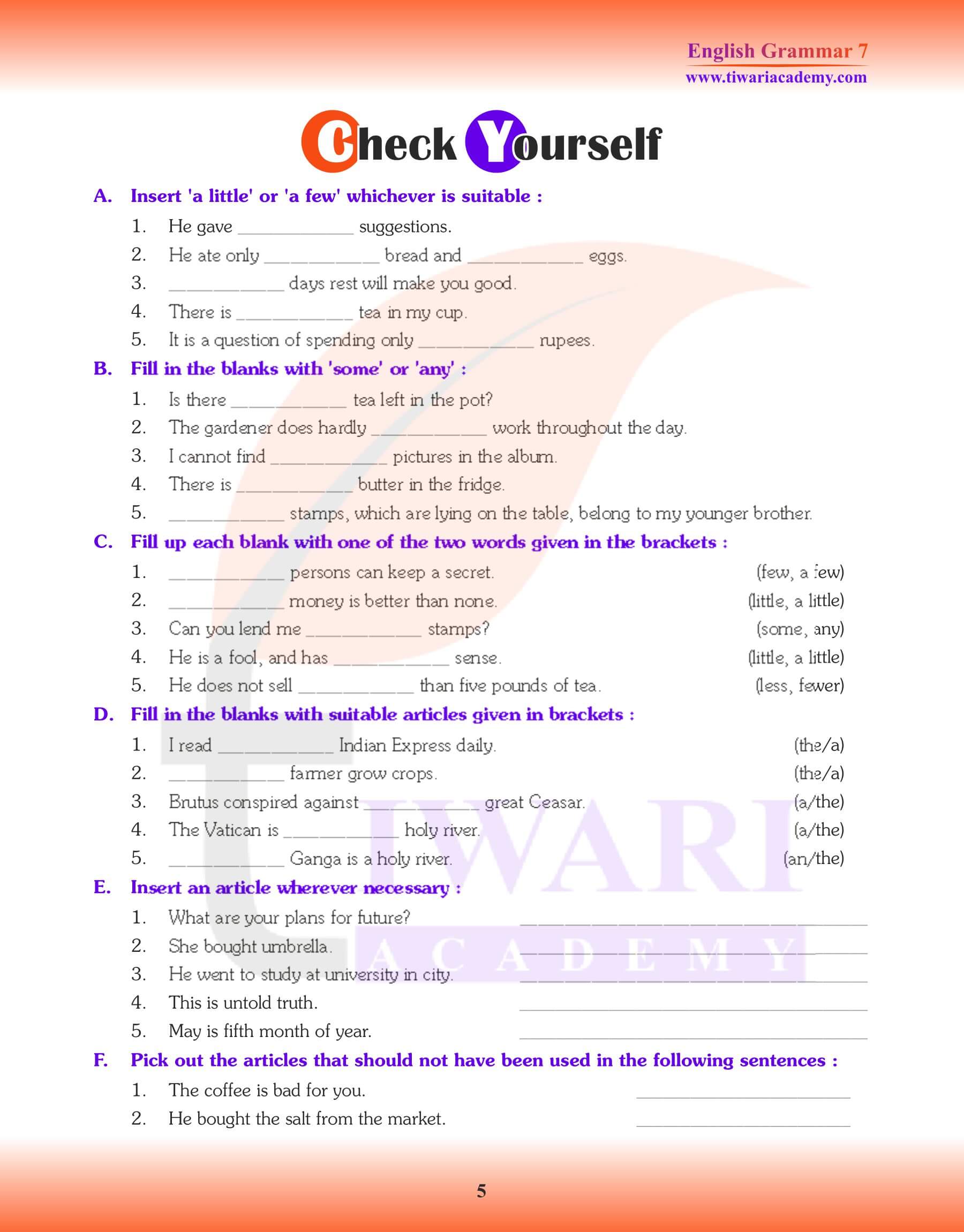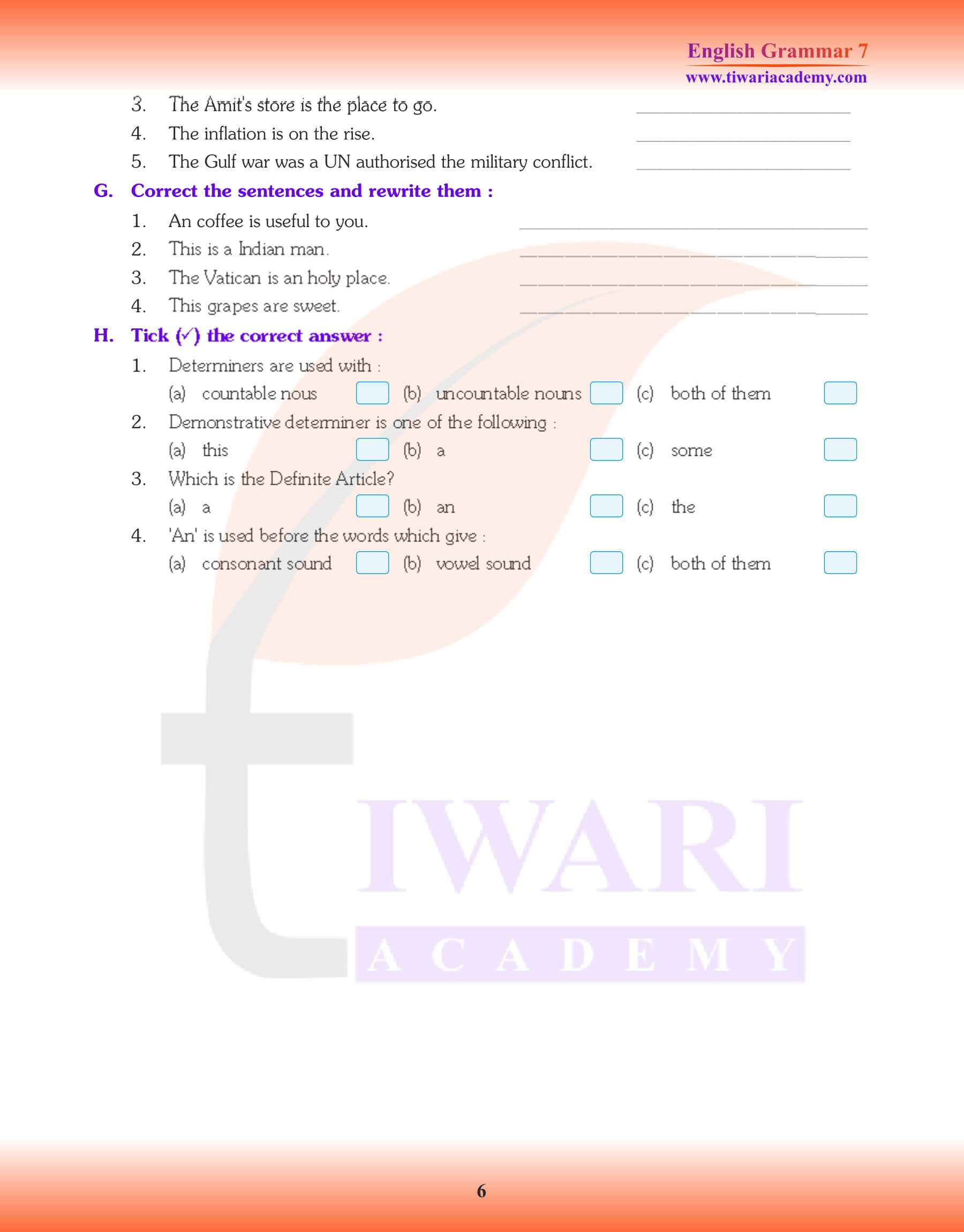Class 7 English Grammar Chapter 6 The Determiner. A Determiner is a word that decides or limits or determines something about the noun or pronoun that follows. Determiners are used before nouns, so they are like adjectives. There are different types of determiners. Determiners – A, An, The (Articles), Possessive Determiners, Demonstrative Determiners and Quantitative Determiners.
Class 7 English Grammar Chapter 6 The Determiner with Examples
Chapter 6 of Class 7 English Grammar introduces students to the fascinating realm of ‘Determiners’. These are crucial linguistic tools that set the tone, limit, or specify certain attributes about the subsequent noun or pronoun. Functioning somewhat like adjectives, determiners always precede nouns, adding depth and context to them. The chapter expounds on several determiner types, namely ‘A’, ‘An’, and ‘The’ which are classified as articles, and it further explores Possessive, Demonstrative, and Quantitative Determiners.
| Class: 7 | English Grammar |
| Chapter: 6 | The Determiner |
| Content: | Textbook and Revision book |
| Academic Session: | 2024-25 |
Indefinite Determiners
A, An
A and An are called the Indefinite Determiners because they do not point out any particular person, animal or thing e.g.
I met girl in the school.
She gave me a mango and an apple.
The Selection Between a And an
(i) We use a before a word that begins with a consonant sound; as, a book, a pen, a boy etc.
(ii) Some words begin with vowels; but they are pronounced with a consonant sound.
So we use “a” before them as, a union, a European, etc.
(iii) An is used before nouns beginning with a vowel sound; as, an ass, an elephant, etc.
(iv) An is used before words beginning with a silent ‘h’ as, an honest, an hour, etc.
(v) An is used before a noun starting with a, consonant but with a vowel sound; as, an M.A., an M.L.A., etc.
Use of Indefinite Determiner
A or An is used
- In the numerical sense of one as, He has an elephant.
- In a general sense to represent the whole class; as, A pupil should be attentive in the class.
- Before a Proper Noun to make it Common Noun as, Here is Shakespeare.
- With only a little, a little, a few as, I have a few friends in this city.
- In certain phrases as, a lot of, a number of, etc.
Definite Determiner
The
The is called the definite determiner because it shows some particular person or thing as, The doctor who treated you, is now in England.
Use of Definite Determiner – The
(i) We use the definite determiner – the
When we speak of a particular person, animal or thing as, This is the girl whom we met yesterday.
(ii) When a single noun represents a whole class; as, The cow is a faithful animal.
(iii) Before the superlative degree as, Khushi is the most intelligent girl in the class.
(iv) Before nouns which are the only ones of their kind; as, The sun, the moon, the earth etc.
But : It is wrong to use the before God.
(v) With the name of directions; as, The north, the south etc.
Definite Determiner- the- is used:
(i) With Nationalities:
The Ganga, the Yamuna, the Thames,
(iii) Before the names of mountain ranges and valleys; as,
(a) The Himalayas, the Alps, the Indies, the Rockeys etc.
More About Determiners
SOME
It is usually used in affirmative sentences before plural nouns or before uncountable nouns when a certain quantity or number is meant; as,
I bought some apples.
I met him some years ago.
MUCH MANY and MANY A
1. Much refers to quantity or amount and is singular. It is used with uncountable nouns; as, There is not much truth in what she says.
2. Many refers to number. It is used with countable nouns; as, How many women were present at the concert?
| FEW | A FEW | THE FEW |
|---|---|---|
| Few men try to know themselves. | Only a few persons in our village are literate. | The few birds that were there in the tree, flew away. |
| Little | A Little | The Little |
|---|---|---|
| There is little water in the jug. | She has a little knowledge about music. | He lost the little money he had. |
As students navigate through this chapter, they’ll gain insights into the distinct roles each determiner type plays in enhancing sentence construction. The chapter is designed to offer clarity on when and how to use determiners effectively, ensuring learners can craft well-structured and meaningful sentences. With its practical approach and examples, students will be well-prepared to implement determiners with confidence in their daily communication.
| Each | Every |
|---|---|
| Each line has ten trees. | Every boy must take part in the sport. |
| Each boy of the class was given sweets. | India expects every man to do his duty. |
| Less | Lesser | Fewer |
|---|---|---|
| There is less milk in my cup than in yours. | This is the lesser evil of the two. | Manoj has fewer friends than I. |
| This jug contains less milk than that. | A lesser man would have admitted defeat- but not so Bhagat Singh. | There are fewer boys than girls in this class. |
